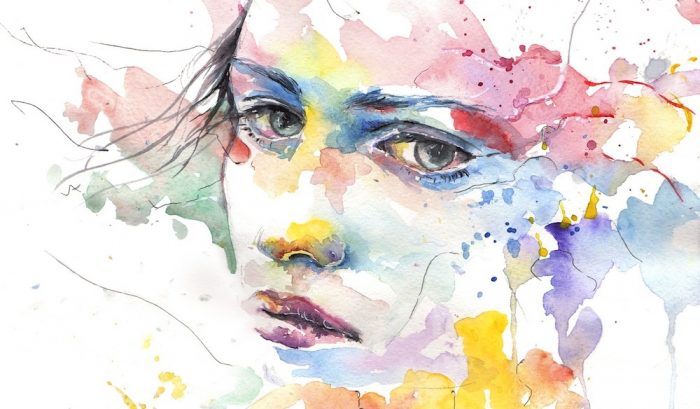Bipolar disorder, once known as manic depression, is a mental illness known for creating dramatic highs and lows in individuals who suffer.
In recent years, professionals have recategorized the illness so that it represents symptoms on more of a continuum.
Bipolar disorder is truly brutal to experience. It sure as hell is not glamorous, and is really nothing like what is portrayed in the media.
How do I know all of this? I am a therapist who lives with bipolar disorder (I know, gasp). I want to share my experience in order to give others an understanding of the disorder, as well as provide the awareness that despite the struggles of living with a mental illness, you can live a successful life. Finally, I hope this is helpful for anyone who needs to hear my story.
Before I begin, I should specify that I receive treatment and am aware of my limitations and knowing when I should not be treating clients.
Bipolar disorder can be difficult to diagnose. In fact, I was not diagnosed until last year, following a horrible mixed episode (where I experienced mania and depression at the same time). I know that I’ve struggled with episodes of depression since I was a teen, but thought I was just an impulsive adrenaline junkie who sometimes made really bad decisions, but sometimes had really good ideas. In retrospect, I totally see a pattern of behavior that should have been labeled as hypomanic (mild mania) or manic.
While I knew my mental health was deteriorating last year, this diagnosis was like a punch to the gut. It literally took my breath away, leaving thoughts swirling in my head like, “What will people think?” Even though it was common knowledge that I battled depression, it was hard to fathom that I had an even more severe and debilitating mental illness. I truly was ill. I truly am ill.
I have been hesitant to share my experience because of the stigma attached to mental illness. This is the first time I’m speaking out publicly to more than a handful of people.
To complicate matters, I’m a therapist, whom people expect to be mentally healthy. Despite that expectation, I feel that experiencing a severe mental illness has given me a greater level of understanding and appreciation for what my clients may be experiencing. This firsthand experience is definitely something that cannot be taught in the Diagnostic and Statistical Manual of Mental Disorders (DSM), or any other textbook.
What I really want people to know is that depression and mania can look much different than what you read about in books. Additionally, your symptoms can change over time.
Depression can include the well-known symptoms of crying, suicidal ideation, and feeling sad. However, what’s important to realize is that depression can also include a severe lack of motivation, sleeping and eating disturbances, anger, guilt, excessive isolation, the inability to think clearly, and an emptiness that permeates your soul. A depression this deep is hard to overcome. When I experience depression this severe, I have to fight with everything I have to come out the other side.
Furthermore, mania is not always characterized by feeling high on life, having great ideas, being extra talkative, or being full of energy. What I’ve come to experience is that mania makes me extremely irritable, I sometimes make risky decisions, I experience periods of extreme sleep disturbance, I say nasty things to people I love, and I go from one activity to another without accomplishing much. This is debilitating.
I tend to cycle through episodes fairly quickly. While I am well aware of my depression, I do not always recognize when I’m in a hypomanic or manic episode. This is especially true if I’m in a really good mood, or when I think I am actually accomplishing a million things at once. When I experience mania, or, normally, hypomania, I feel as if I am out of control. It’s almost as if I cannot control my own actions. This is scary because I become someone I do not recognize.
Just a few words on what it may be like to experience a mental illness, and how you can help. If you know someone who is suffering from bipolar disorder or another mental illness, please be gentle with them and try to understand. These individuals are likely experiencing a mixture of emotions and may not be able to articulate exactly how they are feeling. Please know that it may be difficult for them to see what is happening in the moment.
With bipolar disorder, an individual may exhibit extreme moodiness that is uncharacteristic of their typical behavior. Please understand that this moodiness is much more severe than the day-to-day moodiness we all experience. The moodiness is one of the things I truly detest about the disorder, as during times of extreme moodiness, I cannot always think clearly, I experience extreme emotions, and may say uncharacteristically hurtful things.
Please encourage individuals to receive professional help if they are struggling with a mental illness. Therapy and medication are effective. Therapy helps by providing a safe place to talk about your struggles, fears, emotions, and victories. Medication can help balance your brain chemicals, allowing you to feel well enough to address the illness. While it may take time to find the right medication, feeling fairly well-balanced and clear-headed is so worth it.
As stated above, I receive treatment for my mental illness. While I undeniably still struggle, and will for the rest of my life, I am becoming more aware of my triggers and take treatment seriously. I’m lucky to have the insight that comes from being a therapist. I am thankful to have support from friends and family.
Despite the support, the past year of my life has been hell. The episodes I’ve experienced have been exhausting. I feel as if people do not really understand, but I am not sure if they want to talk about it. I have an amazing psychiatrist, but it’s been a challenge to find the right medication that works for me. There have been times I didn’t even know who I was. I knew enough to take a break from working as a therapist, but I didn’t know what else I was well enough to do. I put my dissertation on hold. I’ve had to find the strength and determination to keep going, keep fighting.
I am proud to say that I have been doing well the past several months. I feel more like myself and am determined to make a positive impact on others. I have started seeing clients again, and I feel a sense of hope that has been sadly elusive. Despite all I’ve been though, here I am before you, working hard to fight a mental illness that is probably twice my size.
If you are struggling with a mental illness, please understand there is help and there is hope. Please know that you can become well enough to live a fulfilling life.
I believe in you, and I wish you the best.
~


 Share on bsky
Share on bsky





Read 5 comments and reply